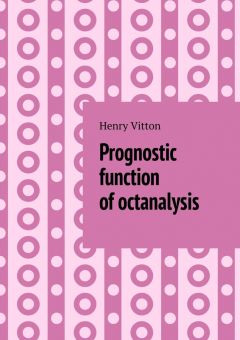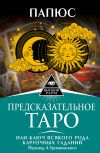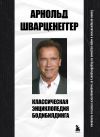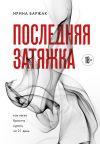Читать книгу "Prognostic function of octanalysis"

Автор книги: Henry Vitton
Жанр: Политика и политология, Наука и Образование
Возрастные ограничения: 12+
сообщить о неприемлемом содержимом
Artist Nikita Dzhigurda suffers from a personality disorder. Such a diagnosis was made to the showman by psychiatrist Alexei Kazantsev on the air of the Secret for a Million program on NTV. The showman himself calls his outrageous behavior «Joker’s cap».
Consider the congenital personality traits of Nikita Dzhigurda.
Nikita Borisovich Dzhigurda or Nikita Borysovych Dzhyhurda (Russian: Ники́та Бори́сович Джигурда́, Ukrainian: Нікіта Борисович Джигурда; born 27 March 1961) is a Ukrainian movie actor, singer, and cult media icon.
As an actor, Dzhigurda is known for his portrayals of historical figures, in particular for the roles of Yermak’s lieutenant, cossack Ivan Koltso, in a 1996 TV miniseries Yermak by directors Uskov and Krasnopolsky, of prince Andrey Kurbsky, king Charles XII of Sweden and Ukrainian poet Ivan Franko.
He is also known for his flamboyant lifestyle and performances, usage of Russian profanities, and his comic appearances on internet videos.
Since 2008 his wife is figure skater Marina Anissina. His first wife was actress Marina Esipenko.
Since 2011, he has been collaborating a lot with the Moscow hip-hop producer – KOKA beats.
Nikita Borisovich Dzhigurda – Soviet and Ukrainian theater and film actor, film director, screenwriter, songwriter. People’s Artist of the Chechen Republic (2008), Honored Artist of the Kabardino-Balkarian ASSR (1987). In September 2016, Dzhigurda announced a change of name and surname to Janatan El-Air Bratash Ji Pogorzhelsky von Gan Eden.
Nikita Dzhigurda was born on March 27, 1961, the octanalytic personality formula
11 lunar day / 31-Leo / 79% + //32-Aries / 1-43-Ox.
The formula shows the congenital personality traits:
– Dzhigurda was born in the «waxing moon» phase, the illumination of the moon’s surface is 79%;
– pronounced congenital dominant managerial abilities («four» as first dominant);
– pronounced congenital dominant creative abilities («three» as second dominant and twice as first dominant);
– congenital dominant rational abilities («two» as second dominant);
– pronounced congenital dominant analytical abilities («one» as background dominant and as second dominant);
– deficiency of congenital dominants: instance 5-Soul, there is no «five» in the formula.
The formula shows that out of the five instances of personality, three instances (4-Heart, 3-Irratio, 1-Mind) manifest themselves as pronounced congenital dominants and one instance (2-Ratio) as a congenital dominant.
The formula also shows that in the psyche of Dzhigurda, the introvert instances 4-Heart and 2-Ratio, complementing each other, show less congenital dominance than the extravert instances 3-Irratio and 1-Mind. This means that when interacting with the outside world, Nikita Dzhigurda’s psyche is more tuned to extraversion than to introversion. In the «introversion-extraversion» system of Nikita Dzhigurda’s psyche, there is a strong imbalance towards extraversion. The Nikita Dzhigurda’s psyche is very unstable to external stimuli.
Dzhigurda was born in the «waxing moon» phase, the illumination of the moon’s surface is 79%. When a person is born on a full moon or almost on a full moon, the human psyche has an increased sensitivity.
A combination of three factors
(1) hypersensitivity of the psyche, due to the birth of almost a full moon;
(2) strong mental imbalance towards extraversion;
(3) pronounced managerial abilities,
create conditions for the formation of Nikita Dzhigurda’s outrageous behavior, which is perceived by others as an accentuation of character, bordering on psychopathy.
The formula also shows that in the two-component unconscious (instances 3-Irration and 2-Ratio, in other words, «three» and «two») there is a pronounced imbalance towards irrationality in the «irrationality-rationality» system: irrationality («three» as second dominant and twice as first dominant) is much more active than rationality («two» as second dominant).
This means that irrational, spontaneous, unpredictable actions appear in Nikita Dzhigurda much more often than rational, consistent, logical actions.
The increased sensitivity of the psyche of Nikita Dzhigurda, the mood of the psyche for extraversion, as well as the setting of unconscious actions for irrationality, spontaneity, all these factors together create a great burden on the psyche.
There is a high probability that without the use of psycho-correction, the psyche of Nikita Dzhigurda may not be able to withstand such a load, and the accentuation of Nikita Dzhigurda’s behavior, the shocking nature of his behavior, may develop into psychopathy.
The change of the name and surname of Nikita Dzhigurda in September 2016 to Janatan El-Air Bratash Ji Pogorzhelsky von Gan Eden may manifest itself as a psycho-correction and stop the transition of accentuation to psychopathy.
The analysis of the congenital properties of the psyche of Nikita Dzhigurda clearly shows that the methods of octanalysis make it possible to identify the cause-and-effect relationships of a mental disorder.
1.6. Personality disorder: Ernest HemingwayConsider the congenital personality traits of Ernest Hemingway.
Ernest Miller Hemingway (July 21, 1899 – July 2, 1961) was an American novelist, short-story writer, and journalist. His economical and understated style – which included his iceberg theory – had a strong influence on 20th-century fiction, while his adventurous lifestyle and public image brought him admiration from later generations. Hemingway produced most of his work between the mid-1920s and the mid-1950s, and he was awarded the 1954 Nobel Prize in Literature. He published seven novels, six short-story collections, and two nonfiction works. Three of his novels, four short-story collections, and three nonfiction works were published posthumously. Many of his works are considered classics of American literature.
Hemingway received wide recognition thanks to his novels and numerous stories – on the one hand, and his life full of adventures and surprises – on the other. His style, concise and rich, significantly influenced the literature of the 20th century.
This American writer suffered from acute bouts of depression that led to mental breakdown. The symptoms were the writer’s suicidal tendencies, persecution mania and frequent nervous breakdowns. When Hemingway returned to America from Cuba in 1960, he immediately agreed to be treated in a psychiatric clinic – he was tormented by frequent depression, a sense of insecurity and constant fear. All this interfered with his work. Leaving the clinic, Hemingway realized that he could not write as before, and then his first suicide attempt happened, interrupted by relatives. The writer’s wife persuaded him to undergo a second course of treatment, but he still had the intention to commit suicide. A couple of days after being discharged, Hemingway shot himself in the head with his favorite gun…
Ernest Hemingway was born on July 21, 1899, the octanalytic personality formula
13 lunar day / 34-Sagittarius / 92% + // 42-Cancer / 2-24-Pig.
If Hemingway had become familiar with the octanalytic formula of his personality, he would have understood the objective cause of his depression, he would not have shot himself in the head with his favorite gun, he would have registered in the octanalytic patronage system for the necessary psycho-correction.
An analysis of the congenital dominant properties of Ernest Hemingway’s psyche clearly shows that the methods of octanalysis make it possible to identify the cause-and-effect relationships of a mental disorder.
1.7. Personality disorder: Vincent van GoghConsider the congenital personality traits of Vincent van Gogh.
Vincent Willem van Gogh (30 March 1853 – 29 July 1890) was a Dutch Post-Impressionist painter who posthumously became one of the most famous and influential figures in Western art history. In a decade, he created about 2,100 artworks, including around 860 oil paintings, most of which date from the last two years of his life. They include landscapes, still lifes, portraits and self-portraits, and are characterised by bold colours and dramatic, impulsive and expressive brushwork that contributed to the foundations of modern art. Not commercially successful in his career, he struggled with severe depression and poverty, which eventually led to his suicide at age thirty-seven.
Vincent van Gogh born March 30, 1853, the octanalytic personality formula
19 lunar day / 41-Scorpio / 83% – // 32-Aries / 5-43-Ox.
The formula shows the congenital personality traits:
– Van Gogh was born in the «waning moon» phase, the illumination of the moon’s surface is 83%;
– pronounced congenital dominant altruistic abilities («five» as a background dominant);
– pronounced congenital dominant managerial abilities («four» twice as first dominant);
– pronounced congenital dominant creative abilities («three» as first and as second dominant);
– congenital dominant rational abilities («two» as second dominant);
– congenital dominant analytical abilities («one» as second dominant);
– there is no deficiency of congenital dominants: all five instances of the personality show congenital dominance.
The formula shows that out of the five instances of personality, three instances (5-Soul, 4-Heart, 3-Irratio) manifest themselves as pronounced congenital dominants and two instances (2-Ratio, 1-Mind) as congenital dominants.
The formula also shows that in the psyche of Van Gogh, the introvert instances 4-Heart and 2-Ratio, complementing each other, show approximately the same congenital dominance as the extravert instances 5-Soul, 3-Irratio and 1-Mind. This means that when interacting with the outside world, Van Gogh’s psyche is equally tuned to both introversion and extraversion. In the «introversion-extraversion» system of Van Gogh’s psyche, a balance of introversion and extraversion is maintained. This means that Van Gogh’s psyche has low resistance to external stimuli.
Van Gogh was born in the waning moon phase, the illumination of the moon’s surface is 83%. When a person is born on a full moon or almost on a full moon, the human psyche has an increased sensitivity.
The formula also shows that in the two-component unconscious (3-Irration and 2-Ratio instances, in other words, «three» and «two») there is a pronounced imbalance towards irrationality in the «irrationality-rationality» system: irrationality («three» as first dominant and as second dominant) is more active than rationality («two» as second dominant).
This means that irrational, spontaneous, unpredictable actions appear in Van Gogh much more often than rational, consistent, logical actions.
A combination of four factors
(1) hypersensitivity of the psyche, due to the birth of almost a full moon;
(2) balance in the «introversion-extraversion» system and low resistance to external stimuli;
(3) a strong imbalance in the «irrationality-rationality» system towards irrationality;
(4) pronounced congenital dominant managerial abilities («four» twice as first dominant),
create conditions for the formation of Van Gogh’s «strange» behavior, which is perceived by others as an accentuation of character, bordering on a personality disorder.
Surrounding people often noted Van Gogh’s sloppy appearance, quick temper, and frequent fits of rage.
The increased sensitivity of Van Gogh’s psyche, the mood of the psyche to both introversion and extraversion, as well as the setting of unconscious actions for irrationality, spontaneity, working alone, the absence of subordinates in the presence of pronounced congenital managerial abilities, all these factors together create a feeling of discomfort in Van Gogh and a lot of stress on the psyche.
Therefore, there was a high probability that without the use of psycho-correction, Van Gogh’s psyche might not be able to withstand such a load, and the accentuation of Van Gogh’s behavior could develop into psychopathy. Vincent van Gogh died at the age of 37.
Applicability limits of
octanalytic personality formula
Vincent van Gogh’s octanalytic personality formula shows that all five instances of personality show congenital dominance, there is no deficiency of congenital dominants, which can lead to personality disorder.
However, the surrounding people perceived Van Gogh as crazy. This means that we have finally found the applicability limits of the octanalytic personality formula.
Deficiency of congenital personality dominants can lead to personality disorder. However, the life story of Vincent van Gogh shows that in addition to this factor, there are other factors that are not reflected in the personality formula, which lead to a personality disorder.
In this regard, it is necessary to consider the influence on human behavior of those areas of the psyche that are outside the five instances of personality (5-Soul, 4-Heart, 3-Irratio, 2-Ratio, 1-Mind).
To describe the human psyche as a whole, octanalysis uses the eight-component structure of the human psyche: instances 0-Source, 7-Imagination, 6-Subconscious and five instances of personality 5-Soul, 4-Heart, 3-Irration, 2-Ratio, 1-Mind.
Instance 7-Imagination forms images that strive to be realized in life. When a person is in a state of dreams, daydreams and does not want to get out of this state, then at that time the instance 7-Imagination dominates in his psyche.
When a person cannot control the process of generating images in his psyche, then problems arise called «persistent hallucinations» that prevent a person from living, interfere with any activity.
Instance 6-Subconscious stores in itself programs, according to which the images generated by instance 7-Imagination are embodied.
When the instance 6-Subconscious dominates in the psyche, a person can be in various states: a state of sleep, trance, a hypnotic state, a state of prostration, somnambulism (sleepwalking), twilight clouding of consciousness.
The interaction between the seven instances of the psyche (7-Imagination, 6-Subconscious, 5-Soul, 4-Heart, 3-Irratio, 2-Ratio, 1-Mind) create a wide variety of personality disorders.
1.8. Personality disorder: Konstantin BatyushkovConsider the congenital personality traits of Konstantin Batyushkov.
Konstantin Nikolaevich Batyushkov (18 [29] May 1787, Vologda – 7 [19] July 1855, Vologda) – Russian poet and prose writer.
The mother of Konstantin Batyushkov, Alexandra Grigorievna (nee Berdyaeva), fell ill when her son was 6 years old; soon, in 1795, she died. It is generally accepted that her mental illness was inherited by Batyushkov and his older sister Alexandra.
In 1808, the maternal inheritance already began to appear: his impressionability began to reach hallucinations of extraordinary brightness, in one of his letters to Gnedich he wrote: «if I live another ten years, then I’ll probably go crazy.»
In 1822, the disease worsened; in the spring, Batyushkov appeared for a short time in St. Petersburg, then went to the Caucasus and the Crimea, where his madness manifested itself in the most tragic forms: in Simferopol, he repeatedly attempted suicide. In 1823, Batyushkov was brought to St. Petersburg, where E.F. Muravyova took him into her care, and in the next 1824, with funds granted by Emperor Alexander I, he was taken to the Sonnenstein private psychiatric institution in Saxony. There he spent four years, however, without any benefit to himself; and it was decided to return him to Russia. In Moscow, the acute attacks almost stopped, and his madness took a quiet, calm course. Back in 1815, Batyushkov wrote the following words about himself to Zhukovsky: «From birth, I had a black spot on my soul, which grew with age and almost blackened my whole soul. God and reason saved. For how long, I don’t know!»
Konstantin Batyushkov was born on May 29, 1787, the octanalytic personality formula
13 lunar day / 41-Scorpio / 92% + // 13-Gemini / 3-21-Goat.
The formula shows the congenital personality traits:
– Batyushkov was born in the «waxing moon» phase, the illumination of the moon’s surface is 92%;
– pronounced congenital dominant managerial abilities («four» as first dominant);
– pronounced congenital dominant creative abilities («three» as background dominant and as second dominant);
– pronounced congenital dominant rational abilities («two» as first dominant);
– hypertrophied expressed congenital dominant analytical abilities («one» as first dominant and twice as second dominant).
– deficiency of congenital dominants: instance 5-Soul.
The formula shows that out of the five instances of personality, one instance (1-Mind) manifests itself as a hypertrophied expressed congenital dominant, three instances (4-Heart, 3-Irratio, 2-Ratio) – as pronounced congenital dominants.
The formula also shows that in Batyushkov’s psyche, two introvert instances 4-Heart and 2-Ratio, complementing each other, show a significantly lower degree of congenital dominance than two extravert instances 3-Irratio, 1-Mind. This means that when interacting with the outside world, Batyushkov’s psyche is tuned more to extraversion than to introversion. In other words, in the «introversion-extraversion» system of Batyushkov’s psyche, there is a strong imbalance towards extraversion. Batyushkov’s psyche has a very low resistance to external stimuli.
The formula shows that Batyushkov was born almost on a full moon, the illumination of the moon’s surface is 92%. He has a congenital hypersensitivity.
In the three-component consciousness of Batyushkov (instances 5-Soul, 4-Heart, 1-Mind), a congenital 14-hierarchy is maintained:
– Instance 1-Mind («one» as first dominant and twice as second dominant) is in the first place in the hierarchy;
– Instance 4-Heart («four» as first dominant) is in second place in the hierarchy.
Properties of instance 1-Mind: analytical abilities, egoism, a sense of superiority, unscrupulousness, destructive activity, building relationships according to the scheme «I am higher, you are lower».
Properties of instance 4-Heart: set a person to build friendly, cordial relations between people according to the scheme «I and you are on the same level.»
When Batyushkov was alone, the 14-hierarchy of consciousness instances was steadily maintained in his mind.
In a state of loneliness, the natural tendency of Batyushkov’s psyche to extraversion, as well as the natural tendency to intense analytical activity with a 14-hierarchy of consciousness instances, combined with increased natural sensitivity, led to the continuous generation of destructive images in Batyushkov’s imagination that drive him crazy.
The formula also shows that in the two-component unconscious (3-Irratio and 2-Ratio instances, in other words, «three» and «two»), there is a balance in the «irrationality-rationality» system: irrationality («three» as background dominant and as second dominant) shows approximately the same activity as rationality («two» as first dominant).
This means that creative, irrational, spontaneous, unpredictable actions are manifested in Konstantin Batyushkov to the same extent as rational, consistent, logical actions. Surrounding people perceive such human behavior as charming behavior.
Konstantin Batyushkov’s charming behavior was combined with a state of insanity from a continuous stream of destructive images in his imagination. Batiushkov could not stop this stream of unpleasant images that interfered with his performance of any activity.
The octanalytic personality formula of Konstantin Batyushkov shows that a child with such a personality formula must be registered from birth in the octanalytic patronage system for psycho-correction and psychological support throughout life.
1.9. Personality disorder: Chris Costner SizemoreConsider the congenital personality traits of Chris Costner Sizemore.
Christine «Chris» Costner Sizemore (April 4, 1927 – July 24, 2016) was an American woman who, in the 1950s, was diagnosed with multiple personality disorder, now known as dissociative identity disorder. Her case, with a pseudonym used, was depicted in the 1950s book The Three Faces of Eve, written by her psychiatrists, Corbett H. Thigpen and Hervey M. Cleckley, upon which the film of the same name, starring Joanne Woodward, was based. She went public with her true identity in the 1970s.
Born in South Carolina. According to her, the first symptoms of the disorder appeared in her as early as 2 years old, but only at school age did she realize that something strange was happening to her. The people around her did not believe her and laughed at her stories about the «other girls» living in her body. Later, her parents still showed her to the doctor because of strange memory lapses. He diagnosed the girl with «an unusual form of amnesia.»
Already in adulthood, the woman had to go to a psychiatric clinic – one of her ego states tried to kill her daughter Taffy. The first suspicion fell on schizophrenia, but later the psychiatrist Corbett Siegpen diagnosed her with dissociative identity disorder. More than 20 ego-states of different age and character coexisted in Sizemore’s body. The doctors first suggested shock therapy, which Sizemore refused, and the treatment was more gentle methods.
Chris Costner Sizemore born April 4, 1927, the octanalytic personality formula
3 lunar day / 23-Taurus / 7% + // 32-Aries / 3-23-Rabbit.
The formula shows that out of the five instances of the personality, two instances of the unconscious (3-Irratio, 2-Ratio) show hypertrophied expressed congenital dominance («three» as a background dominant, as first dominant and twice as second dominant; «two» as second dominant and twice as first dominant). Lack of congenital dominants: three instances of consciousness 5-Soul, 4-Heart, 1-Mind.
The formula shows a congenital tendency to personality disorder «schizophrenia».
Three instances of consciousness 5-Soul, 4-Heart, 1-Mind, which carry out respectively conscious emotional, volitional and intellectual choice, do not have congenital dominance.
Chris Costner Sizemore has a hard time making a conscious choice. When a life situation requires a choice, it becomes difficult to make a decision. The psyche is in an uncomfortable state. Against the background of schizophrenia, dissociative identity disorder began to develop.
A child with such a personality formula from birth must be registered in the octanalytic patronage system of for the implementation of psycho-correction and the provision of psychological support throughout life.
Внимание! Это не конец книги.
Если начало книги вам понравилось, то полную версию можно приобрести у нашего партнёра - распространителя легального контента. Поддержите автора!








































